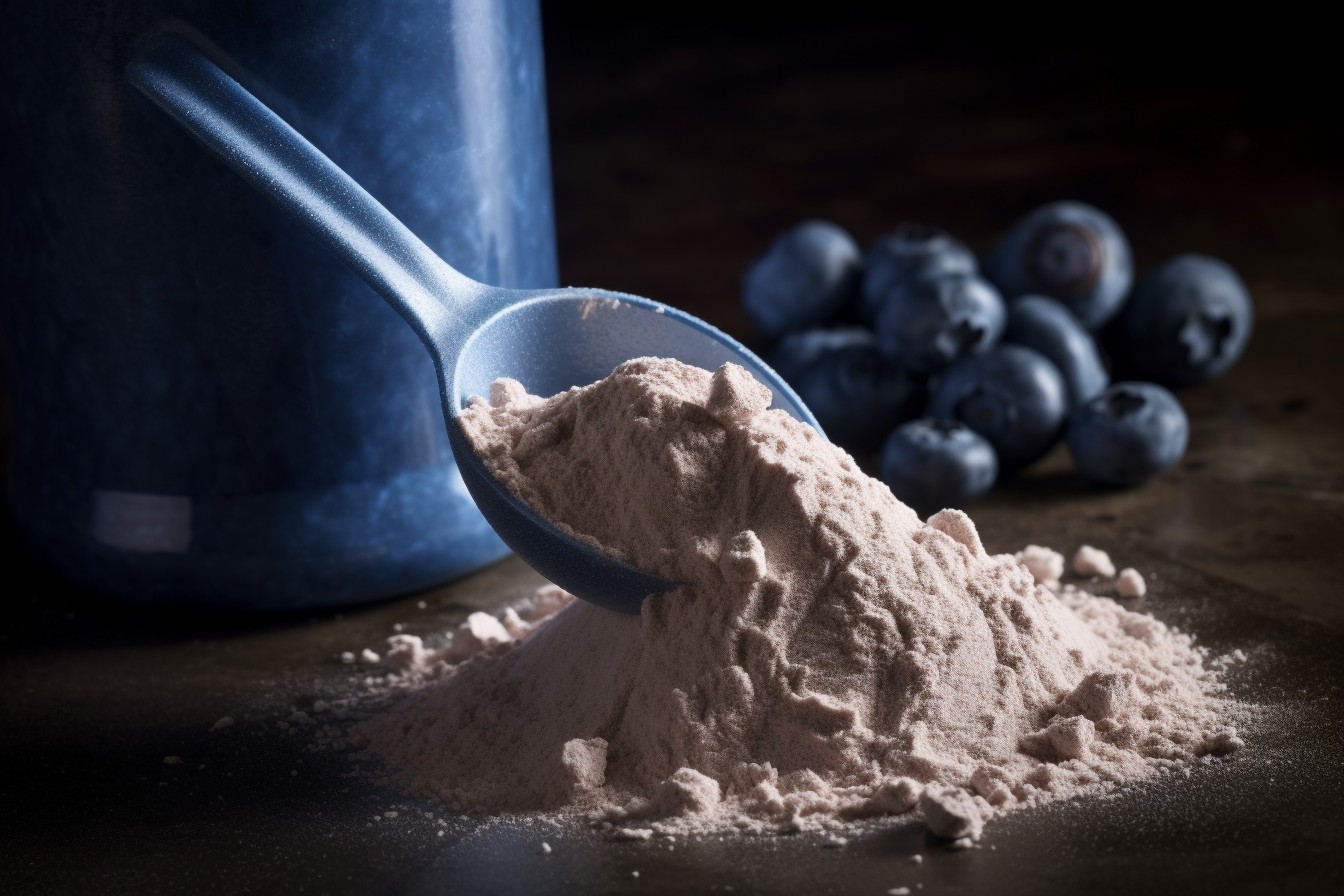Protein plays a crucial role in muscle recovery post-endurance training. Endurance training can cause muscle damage and protein breakdown, which can lead to muscle soreness and fatigue. Consuming protein after exercise can help repair and rebuild muscle tissue, reduce muscle soreness, and improve overall recovery. In this article, we will explore the role of protein in muscle recovery post-endurance training and discuss the optimal timing and amount of protein intake for maximum benefits.
The Importance of Protein in Muscle Recovery Post-Endurance Training
Endurance training is a popular form of exercise that involves prolonged physical activity, such as running, cycling, or swimming. While endurance training can provide numerous health benefits, it can also lead to muscle damage and fatigue. This is where protein comes in. Protein is an essential nutrient that plays a crucial role in muscle recovery post-endurance training.
Protein is made up of amino acids, which are the building blocks of muscle tissue. When we engage in endurance training, our muscles undergo stress and damage. This damage triggers a process called muscle protein breakdown, where the body breaks down muscle tissue to release amino acids. These amino acids are then used to repair and rebuild damaged muscle tissue.
However, the body cannot produce all the necessary amino acids on its own. This is where dietary protein comes in. Consuming protein after endurance training provides the body with the necessary amino acids to repair and rebuild muscle tissue. In fact, research has shown that consuming protein after endurance training can enhance muscle recovery and reduce muscle soreness.
The amount of protein needed for muscle recovery post-endurance training varies depending on factors such as body weight, training intensity, and training duration. However, a general guideline is to consume 0.14-0.23 grams of protein per pound of body weight within 30 minutes to an hour after endurance training. For example, a 150-pound person would need to consume 21-35 grams of protein post-endurance training.
It is also important to note that the type of protein consumed can affect muscle recovery. Whey protein, which is derived from milk, is a popular choice for post-endurance training recovery due to its high concentration of essential amino acids. However, plant-based protein sources such as soy, pea, and rice protein can also be effective for muscle recovery post-endurance training.
In addition to consuming protein, it is also important to consume carbohydrates post-endurance training. Carbohydrates provide the body with energy to fuel muscle recovery and replenish glycogen stores, which are depleted during endurance training. Consuming a combination of protein and carbohydrates post-endurance training can enhance muscle recovery and improve overall performance.
In conclusion, protein plays a crucial role in muscle recovery post-endurance training. Consuming protein after endurance training provides the body with the necessary amino acids to repair and rebuild damaged muscle tissue. The amount and type of protein consumed can affect muscle recovery, and it is important to consume carbohydrates as well to fuel muscle recovery and replenish glycogen stores. By incorporating protein and carbohydrates into post-endurance training nutrition, individuals can enhance muscle recovery and improve overall performance.

How Much Protein Do You Need for Optimal Muscle Recovery?
Protein is an essential nutrient that plays a crucial role in muscle recovery post-endurance training. It is responsible for repairing and rebuilding muscle tissue that is damaged during exercise. The amount of protein required for optimal muscle recovery varies depending on several factors, including the intensity and duration of the workout, the individual’s body weight, and their fitness goals.
The recommended daily protein intake for an average adult is 0.8 grams per kilogram of body weight. However, endurance athletes require a higher protein intake to support muscle recovery and growth. The American College of Sports Medicine recommends that endurance athletes consume between 1.2 and 1.4 grams of protein per kilogram of body weight per day.
For example, a 150-pound endurance athlete would need between 82 and 96 grams of protein per day. This can be achieved through a combination of whole foods and protein supplements such as whey protein powder, which is a popular choice among athletes due to its high protein content and fast absorption rate.
It is important to note that consuming excessive amounts of protein does not necessarily lead to greater muscle recovery. The body can only absorb and utilize a certain amount of protein at a time, and any excess is excreted through urine. Consuming too much protein can also lead to dehydration and kidney damage.
Timing is also crucial when it comes to protein consumption for muscle recovery. Consuming protein within 30 minutes to an hour after exercise can help maximize muscle recovery. This is because the body is in a state of heightened protein synthesis during this time, and consuming protein can help facilitate the repair and growth of muscle tissue.
In addition to post-workout protein consumption, it is also important to consume protein throughout the day to support muscle recovery. This can be achieved by incorporating protein-rich foods such as lean meats, eggs, and legumes into meals and snacks.
It is also important to consider the quality of protein consumed for muscle recovery. Complete proteins, which contain all nine essential amino acids, are the most effective for muscle recovery. Animal-based proteins such as meat, poultry, and dairy products are complete proteins, while plant-based proteins such as beans and grains are incomplete and require combining to achieve a complete protein profile.
In conclusion, protein plays a crucial role in muscle recovery post-endurance training. Endurance athletes require a higher protein intake than the average adult to support muscle recovery and growth. The recommended daily protein intake for endurance athletes is between 1.2 and 1.4 grams per kilogram of body weight per day. Timing and quality of protein consumption are also important factors to consider for optimal muscle recovery. By incorporating protein-rich foods and supplements into their diet, endurance athletes can support their muscle recovery and achieve their fitness goals.

The Best Sources of Protein for Muscle Recovery Post-Endurance Training
Protein is an essential nutrient that plays a crucial role in muscle recovery post-endurance training. Endurance training can cause muscle damage, which leads to muscle soreness and fatigue. Consuming protein after endurance training can help repair and rebuild muscle tissue, reduce muscle soreness, and improve muscle function.
The best sources of protein for muscle recovery post-endurance training are lean meats, poultry, fish, eggs, dairy products, and plant-based sources such as beans, lentils, nuts, and seeds. These sources of protein contain all the essential amino acids required for muscle repair and growth.
Lean meats such as chicken, turkey, and beef are excellent sources of protein. They are also low in fat, making them an ideal choice for those who are watching their calorie intake. Fish such as salmon, tuna, and mackerel are also great sources of protein. They are rich in omega-3 fatty acids, which have anti-inflammatory properties that can help reduce muscle soreness and inflammation.
Eggs are another excellent source of protein. They contain all the essential amino acids required for muscle repair and growth. They are also rich in vitamins and minerals such as vitamin D, which is essential for bone health.
Dairy products such as milk, cheese, and yogurt are also great sources of protein. They are rich in calcium, which is essential for bone health. They also contain other nutrients such as vitamin B12, which is essential for nerve function.
Plant-based sources of protein such as beans, lentils, nuts, and seeds are also great options for muscle recovery post-endurance training. They are rich in fiber, which can help regulate blood sugar levels and promote satiety. They are also rich in vitamins and minerals such as iron, which is essential for oxygen transport in the body.
It is important to consume protein within 30 minutes to an hour after endurance training to maximize muscle recovery. This is because the body is most receptive to protein during this time, and consuming protein during this window can help promote muscle repair and growth.
In addition to consuming protein, it is also important to stay hydrated after endurance training. Dehydration can lead to muscle cramps and fatigue, which can hinder muscle recovery. Drinking water and electrolyte-rich fluids such as sports drinks can help replenish fluids lost during endurance training.
In conclusion, protein is an essential nutrient that plays a crucial role in muscle recovery post-endurance training. The best sources of protein for muscle recovery post-endurance training are lean meats, poultry, fish, eggs, dairy products, and plant-based sources such as beans, lentils, nuts, and seeds. Consuming protein within 30 minutes to an hour after endurance training can help promote muscle repair and growth. It is also important to stay hydrated after endurance training to maximize muscle recovery.

Timing Your Protein Intake for Maximum Muscle Recovery
Protein is an essential nutrient for muscle recovery and growth. It is particularly important for athletes and individuals who engage in endurance training, as their muscles undergo significant stress and damage during exercise. Consuming protein after exercise can help repair and rebuild muscle tissue, leading to faster recovery and improved performance.
Timing your protein intake is crucial for maximizing muscle recovery post-endurance training. Research suggests that consuming protein within 30 minutes to an hour after exercise can enhance muscle protein synthesis, the process by which new muscle tissue is formed. This is because exercise increases the body’s sensitivity to protein, making it more efficient at utilizing it for muscle repair and growth.
The amount of protein needed for muscle recovery varies depending on the individual’s body weight, exercise intensity, and training goals. However, a general guideline is to consume 0.14-0.23 grams of protein per pound of body weight within the first hour after exercise. For example, a 150-pound individual should aim to consume 21-35 grams of protein post-workout.
Protein sources that are easily digestible and high in essential amino acids, such as whey protein, are ideal for muscle recovery. Whey protein is a fast-digesting protein that can be absorbed quickly by the body, making it an excellent choice for post-workout nutrition. Other protein sources, such as casein and soy protein, are also effective for muscle recovery but may take longer to digest.
In addition to timing and amount, the quality of protein consumed also plays a role in muscle recovery. Complete proteins, which contain all nine essential amino acids, are the most effective for muscle repair and growth. Animal-based proteins, such as meat, poultry, fish, and dairy, are complete proteins. Plant-based proteins, such as beans, lentils, and quinoa, are incomplete proteins but can be combined to form complete proteins.
Consuming carbohydrates along with protein post-workout can also enhance muscle recovery. Carbohydrates help replenish glycogen stores, the body’s primary source of energy during exercise. This can help reduce muscle soreness and fatigue, allowing for faster recovery. A general guideline is to consume a 3:1 ratio of carbohydrates to protein post-workout. For example, if you consume 30 grams of protein, aim to consume 90 grams of carbohydrates.
It is important to note that protein intake alone is not enough for muscle recovery. Adequate rest and hydration are also essential for optimal recovery. Getting enough sleep and staying hydrated can help reduce muscle soreness and inflammation, allowing for faster recovery. Additionally, incorporating stretching and foam rolling into your post-workout routine can help improve flexibility and reduce muscle tension.
In conclusion, protein plays a crucial role in muscle recovery post-endurance training. Timing your protein intake within the first hour after exercise, consuming the right amount and quality of protein, and combining it with carbohydrates can enhance muscle repair and growth. However, it is important to remember that protein intake alone is not enough for optimal recovery. Adequate rest, hydration, and stretching are also essential for maximizing muscle recovery and improving performance.
The Role of Supplements in Enhancing Protein Intake for Muscle Recovery
Endurance training is a popular form of exercise that involves prolonged physical activity, such as running, cycling, or swimming. While endurance training can improve cardiovascular health and endurance, it can also lead to muscle damage and fatigue. This is where protein comes in. Protein is essential for muscle recovery and growth, making it an important nutrient for endurance athletes. In this article, we will explore the role of protein in muscle recovery post-endurance training and the role of supplements in enhancing protein intake.
Protein is made up of amino acids, which are the building blocks of muscle tissue. During endurance training, muscle tissue is damaged, and protein is needed to repair and rebuild the tissue. Protein also helps to reduce muscle soreness and fatigue, allowing athletes to recover faster and perform better in their next workout.
The recommended daily intake of protein for endurance athletes is 1.2-1.4 grams per kilogram of body weight. However, it can be challenging to meet this requirement through diet alone, especially for athletes who follow a vegetarian or vegan diet. This is where protein supplements come in.
Protein supplements are a convenient and effective way to increase protein intake. There are several types of protein supplements available, including whey protein, casein protein, soy protein, and pea protein. Whey protein is the most popular type of protein supplement and is derived from milk. It is a complete protein, meaning it contains all nine essential amino acids. Casein protein is also derived from milk and is a slower-digesting protein, making it ideal for nighttime use. Soy protein is a plant-based protein that is also a complete protein. Pea protein is another plant-based protein that is high in branched-chain amino acids (BCAAs), which are essential for muscle recovery.
In addition to protein supplements, there are also other supplements that can enhance muscle recovery post-endurance training. BCAAs, for example, are essential amino acids that can help to reduce muscle damage and fatigue. Creatine is another supplement that can improve muscle recovery by increasing energy production in the muscles. Beta-alanine is another supplement that can improve endurance and reduce muscle fatigue.
While protein supplements and other supplements can be beneficial for muscle recovery, it is important to remember that they should not be used as a substitute for a healthy diet. Whole foods should always be the primary source of nutrients, including protein. Athletes should aim to consume a variety of protein sources, including lean meats, fish, eggs, dairy, and plant-based sources such as beans, lentils, and nuts.
In conclusion, protein is essential for muscle recovery post-endurance training. Protein supplements can be a convenient and effective way to increase protein intake, especially for athletes who struggle to meet their daily protein requirements through diet alone. Other supplements, such as BCAAs, creatine, and beta-alanine, can also enhance muscle recovery. However, it is important to remember that supplements should not be used as a substitute for a healthy diet. Athletes should aim to consume a variety of protein sources and whole foods to ensure they are getting all the nutrients they need for optimal performance and recovery.
Q&A
1. What is the role of protein in muscle recovery post-endurance training?
Protein plays a crucial role in muscle recovery post-endurance training by repairing and rebuilding muscle tissue that has been damaged during exercise.
2. How much protein should be consumed after endurance training?
The amount of protein needed after endurance training varies depending on factors such as body weight, exercise intensity, and duration. Generally, consuming 20-30 grams of protein within 30 minutes to an hour after exercise is recommended.
3. What are some good sources of protein for muscle recovery?
Good sources of protein for muscle recovery include lean meats, poultry, fish, eggs, dairy products, beans, nuts, and seeds.
4. Can consuming too much protein be harmful?
Consuming excessive amounts of protein can be harmful to the body, leading to dehydration, kidney damage, and other health issues. It is important to consume protein in moderation and in balance with other nutrients.
5. Is it necessary to consume protein supplements for muscle recovery?
While protein supplements can be a convenient way to consume protein after endurance training, they are not necessary for muscle recovery. Consuming protein from whole food sources is just as effective in promoting muscle recovery.Protein plays a crucial role in muscle recovery post-endurance training. It helps repair and rebuild muscle tissue that has been damaged during exercise. Consuming protein after a workout can also help reduce muscle soreness and improve overall recovery time. It is important to consume enough protein to support muscle recovery, but the exact amount needed may vary depending on individual factors such as body weight and exercise intensity. Overall, incorporating protein into a post-workout recovery routine can help optimize muscle recovery and improve athletic performance.


Leave a Reply